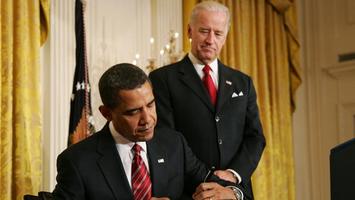
Personal experience made me a skeptic about racial progress. When I was 8, I was upset when our Japanese neighbors in Los Angeles were sent off to internment. In 1963, I traveled across the Deep South, awed by the totality of poverty, segregation and discrimination.
But the election of Barack Obama restored a degree of faith in the American experiment, and hope for an economic and social turnaround. I was inspired by the inauguration and am encouraged by initial and intended actions. I’m reasonably sure that significant reforms will occur.
But my skepticism about more fundamental change remains strong. The Democratic Party is of the intellectual rich, not of the worker, and not very inclined to deep change. The most critical political story of the election was the 12 to 15 percent shift of the rich, educated and suburban to the Democrats, offsetting the shift of about 6 percent of the less educated or professional, but more religious and rural to the Republicans.
Karl Rove’s strategy of combining affluent economic conservatives and social conservatives ultimately failed. He thought tax cuts would keep the rich loyal, but they defected. But at the same time, the shift of the affluent has, in my mind, weakened the historic mission of the Democratic Party.
By far the greatest issue before us, one barely on anyone’s agenda, is the astounding degree of economic inequality, perhaps approaching the levels of 1929 or even 1913. This obscene outcome, an astounding concentration of wealth by the super-rich, is a consequence of market failure – the capacity of those at the top to exercise monopoly power over the economy, and whose tax cuts and deregulation contributed to the current financial crisis and deepening recession.
Not unrelated to this process are deindustrialization, over-globalization and overdependence on other nations for resources, products, and credit. The story of the rise of the United States to world power was based on production. Our success over Germany and Japan depended on massive production of war materials (yes, from the likes of General Motors, Ford and Chrysler) and our capacity to destroy the productive capacity of the enemy. Now we are willing to bail out the bloated financial and service sectors, and let industry die. Trade is overall beneficial and it is in our interest to aid in the economic development of all countries, but it is irresponsible and false savings to outsource basic production (and increasingly, even services). It is absurd to believe that we can safely prosper by trading, packaging, moving, storing, advertising, insuring, selling, brokering information, but not MAKING STUFF!
This system of import dependence has accentuated our growing class divide. We create high-end jobs for some, but very few of the middle class opportunities long associated with production. Production also creates a wide range of higher end service-related jobs. When you are selling things made in China, much of the non-production value added is also exported.
The increased bifurcation of our society can be seen in other fields. While the United States may have the “finest” education at the top, the general level of education is amazingly mediocre with astounding prevalence of ignorance and superstition, especially about science, economics and geography. I do not see even a hint of a turnaround here.
I suspect the power of the medical insurance and hospital sectors are sufficient to prevent serious reform of the dysfunctional health system. Nor are we close to abandonment of the hopeless war on drugs, or to real reform of criminal justice, and – despite the election of Barack Obama – the integration of millions of Black males into mainstream society. Do the ivory tower economic theorists, Democratic as well as Republican, have a clue about the disaster potential of 100,000 more unemployed workers in Detroit? Does no one remember the race riots in Detroit or Watts, and the long history of labor unrest in America?
This sad economic and social restructuring began around 1976. Believe it or not, the lowest level of economic inequality in US history was 1974 in the Nixon administration. Those of us at the top surely believe we earned our way there, but are in denial about the immense cost to the majority left behind.
I just hope I’m as wrong about prospects for real reform as I was about the election!
P.S.
A guy (Obama) who could do the Bump with a 9 year old girl at maybe his 10th inaugural ball is so cool that perhaps I’ll raise my optimism level!
Richard Morrill is Professor Emeritus of Geography and Environmental Studies, University of Washington. His research interests include: political geography (voting behavior, redistricting, local governance), population/demography/settlement/migration, urban geography and planning, urban transportation (i.e., old fashioned generalist)













thanks for discussing trade, drugs, and other topics
Thank you Richard Morrill.
I hope people will read
"Free Trade Ideology And The Constitution" by Michael Doliner http://www.swans.com/library/art10/mdolin04.html
"A 545 Billion Private Stimulus Plan
Let's bring home foreign earnings without tax penalty." by Allen Sinai
http://online.wsj.com/article/SB123310439653922291.html
"Obama Has the Chance To Be Another FDR - He Can End the Era of Marijuana Prohibition" by Bob Fitrakis and Harvey Wasserman
http://www.alternet.org/drugreporter/120365
I discuss dealing with the financial crisis, manufacturing, and why governments should legalize, regulate, and tax the sale of marijuana, heroin, and cocaine for people who are at least 18 years old on my profile.
My website is http://www.myspace.com/kennethstremsky
I posted humor, product recommendations, and other things on http://sites.google.com/site/kenstremsky/
Sincerely,
Ken Stremsky